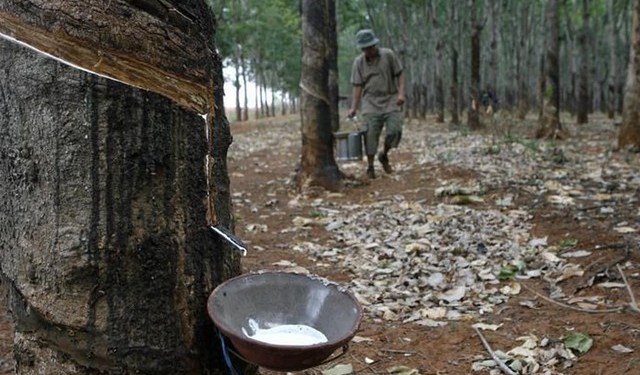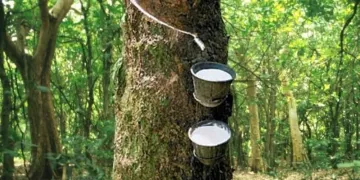Unable to recover from steep fall in prices of natural rubber continuously in the last five years, rubber growers in the State have urged the government to reserve Rs. 100 crore in the 2016-17 budget for offering support price.
 The growers, led by Sridhar G. Bhide, president, Karnataka State Rubber Belegarara Hitarakshana Vedike, Ujire, submitted a memorandum to Chief Minister Siddaramaiah about 10 days ago.
The growers, led by Sridhar G. Bhide, president, Karnataka State Rubber Belegarara Hitarakshana Vedike, Ujire, submitted a memorandum to Chief Minister Siddaramaiah about 10 days ago.
Mr. Bhide told The Hindu that the growers have demanded the Kerala model of relief. The vedike, in the memorandum, has urged the government to ensure that the farmers got a minimum of Rs. 150 a kg. For example, if the market price for natural rubber now stood at Rs. 100 a kg, the State government would have to contribute the balance Rs. 50. Hence, it should reserve funds for the purpose.
The support price should be given to small farmers who have rubber in an area spread up to two hectares (about five acres). He said that the support price should be given per farmer for selling rubber up to a maximum of 300 kg a month.
He said that the Kerala government in its 2015-16 budget reserved Rs. 300 crore under rubber production incentive scheme to support rubber growers.
Under the scheme, the difference between the market support price, which was Rs. 150 a kg, fixed by the Kerala government, and the daily reference price (or daily market price) approved by the Rubber Board, was credited to the bank account of the farmer directly.
It was on the basis of purchase bills furnished by the Rubber Producers’ Societies and duly certified by the Field Officers of the Board.
Kerala ensured that rubber growers got a minimum Rs. 150 per kg from July 2015, he said.
Putting before the government the same demand the growers here had staged a protest on January 18. Mr. Bhide said that the vedike had apprised all MLAs from Dakshina Kannada and Udupi of the seriousness of the issue due to fall in prices.
The actual prices of rubber crashed from Rs. 247 a kg in 2011-12. Now, it hovered between Rs. 100 and Rs. 110 a kg. With this, the growers were not able to recover their production cost, he said.




























